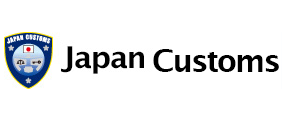4007 Outline of the Agreement between Japan and the Government of Malaysia
On May 2005, Japan and Malaysia jointly announced that agreement in principle has been reached on major elements of the Japan-Malaysia Economic Partnership Agreement (hereinafter referred to as the "JMEPA" ), on the basis of a series of negotiations since January 2004. The JMEPA was entry into force on Jury 2006.
The JMEPA became the third economic partnership agreement, following those concluded with Singapore and Mexico.
1. Summary of the Agreement
The JMEPA will further broaden and deepen the already close and cordial ties of friendship and mutually beneficial cooperation by forging closer economic relations, enhancing more favourable investment climate, and generating greater business opportunities through cooperation, liberalization and facilitation in trade and investment between the two countries
2. The significance of the Agreement for Japan
Malaysia is Japan's 11th export partner and 11th import partner (2022 Trade Statistics, Ministry of Finance). Japan and Malaysia hope that the JMEPA will accelerate sound economic development, promote the well-being of the peoples, and contribute to the capacity building of both countries as well as the region. At the same time, it is a symbol representing further advancement of ties with Malaysia, a key ASEAN nation that has pursued closer cooperation with Japan by promoting the "Look East" policy. The JMEPA will mark a new era for Japan-Malaysia strategic partnership and provide a solid basis for an East Asian community.
3. The key elements in the Agreement
-
(1) Trade in goods: Comprehensive tariff elimination and reduction for mining and industrial products and for agricultural products in bilateral trade
(2) Customs procedures: Assurance of transparency related to customs-related laws and regulations, improvement in speed and inconsistency and transparency of customs procedures, greater speed in customs clearance for temporary imports and goods in transit and cooperation and information exchange between customs authorities of the two countries
(3) Investment: Equal national treatment and most favored nation treatment as a general rule and on a mutual basis and prohibition on demand to execute certain measures
(4) Services: Pledge for market access, equal national treatment and most favored nation treatment in specified areas of each country
(5) Intellectual property, greater transparency in intellectual property system, assurance of adequate protection and greater enforcement of intellectual property rights and cooperation in the area of intellectual properties
(6) Regulation of anti-competitive practices: Cooperation in the area of implementation and regulation of measures against anti-competitive practices
(7) Development of business environment: Establishment of liaison offices to handle complaints and inquiries from businesses from the other-party nation
(8) Cooperation: Cooperation in the seven areas of agriculture, forestry and fisheries, education and human resources development, information and communication technology, science and technology, small businesses, tourism, and environment
For consultations on customs procedures, please contact the nearest Customs Counselor.
Please see No. 9301 for inquiries.

